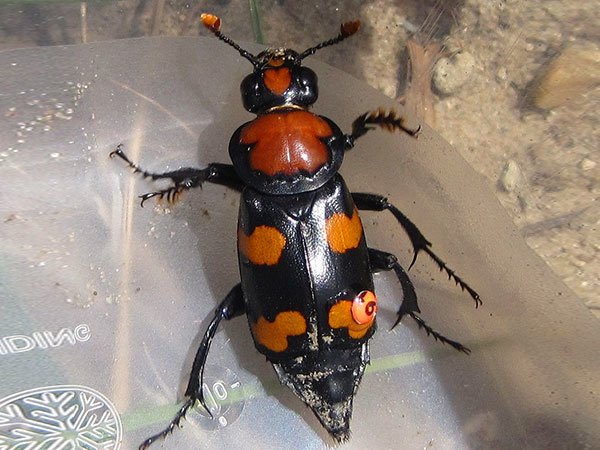
You’ve likely never heard of the American Burying Beetle. Neither had we, until the species was downgraded from “endangered” to “threatened” under the Endangered Species Act by the US Fish and Wildlife Service, the agency charged with administering the Act.
The beetle was the first insect listed as endangered under the ESA, in 1989. They had been extirpated from about 90% of their range and at the time of listing were found only in Oklahoma and Rhode Island. Since then, populations have been re-established in 5 states (Arkansas, Kansas, South Dakota, Texas and Nebraska). These insects have been described as nature’s undertakers or sanitation engineers and one of the most efficient and fascinating recyclers because they recycles nutrients back into the soil.
We frequently support and celebrate the recovery of endangered species. But there’s nothing to celebrate here. We’ll challenge this nonsensical decision to strip the beetle of protection.
Noah Greenwald, Center for Biological Diversity
“Jumping the gun” is how Dr. Stuart Woods characterizes the agency’s decision. He is a professor of biology at Oklahoma’s Connors State College who has researched the beetle and its habitat for a quarter century. Prof. Woods said he has found little evidence to support claims that the beetles’ populations have grown.
He said in an interview: “’We know more than we did when I started studying this 25 years ago, but I don’t think we know enough about this beetle to de-list it. This is not a state-level decision, it is being made at the national level, and I feel like we are jumping the gun a little.’”
Another expert expressed concern: “Lou Perrotti, director of conservation programs at Roger Williams Park Zoo in Providence [RI], manages a captive-breeding program for the American burying beetle, said he’s not comfortable with the decision because there are so many unknowns about the species. Despite his and others’ work, no introduced population of the beetle anywhere has become self-sustaining. … We haven’t achieved the recovery goal for the species,’ said Perrotti.”
Nonetheless, and even acknowledging that climate change poses a risk to the beetle in the next 30-50 years, the agency proceeded to remove protections. The litany of reasons given are familiar to those who have followed the USFWS in its unceasing and increasingly fast-paced efforts to undermine not only the Endangered Species Act, but also the Migratory Bird Treaty Act. The predictable list of usual rationales justifying the action was trotted out again and include:
- it’s a victory for conservation
- It’s a comeback for its population
- It’s a “partnership approach to conservation” (although environmentalists and the animals themselves are not partners)
- The setting aside of more than a small amount of habitat would do little
But here’s “the rest of the story,” variants of which are becoming depressingly predictable in the decisions made by this Administration:
- A powerful US Senator from Oklahoma lobbied for this
- It will help the oil and gas industry
- And, most salient,the beetle is in the way of the Keystone XL Pipeline
American Burying Beetles are not megafauna, much less charismatic megafauna. They are not well known. They have some powerful enemies. The USFWS should, as is mandated by law, consider science from experts who don’t align with the agency’s preconceived notions of tipping the balance in favor of industry. Because these animals matter.
